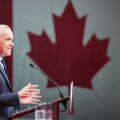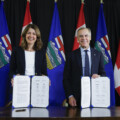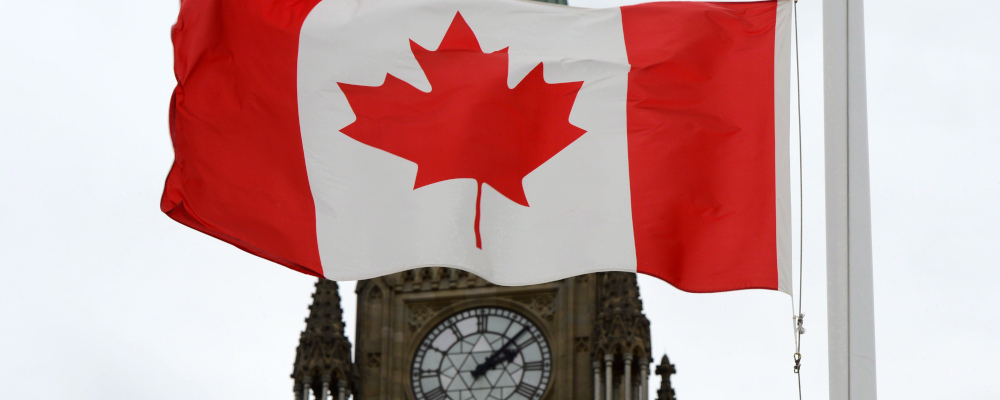In a recent column, the Globe and Mail’s Andrew Coyne posed the big question: what ideas, values, or common projects will hold Canada together as the country invariably becomes more diverse and in turn more fractious in the coming years?
Although his ultimate answer is incomplete (which may tell us something about the inherent challenge in defining Canada’s overarching identity in the modern age), he should be lauded for directly addressing such a manifestly important yet often underexplored question.
It’s a perversity of modern Canadian discourse that while, on one hand, Coyne’s question couldn’t be more paramount in light of our growing heterogeneity, on the other hand, it’s typically overshadowed by a superficial yet common political narrative that presupposes diversity is self-evidently good as the prime minister and others claim.
According to this line of thinking, there’s nothing that we need to do to tend to the state of Canada’s “political nation.” Stability, order, and social cohesion are the natural order of things. Concerns about so-called “first things” are therefore either viewed as wholly unjustified or something that ought to be limited to the private realm.
Coyne isn’t so sure. He raises the alarm that a combination of forces including growing religious, ethnic and cultural differences, increasing negativity about the country’s historic failings, and a denial of “any foundational principles” risks undermining the basic case for Canada.
He’s right, of course. A nation state must be more than just a loose collection of attenuated individuals living within a defined set of geographic borders to ultimately sustain itself. The risk isn’t that the country will dissolve overnight but rather that it succumbs to the energy-sapping forces of drift, decadence, and paralysis.
The outcome: We become stuck in a form of grievance politics that defines itself according to the zero-sum redistribution of scarce public resources from one region or group to another rather than a set of overarching national goals.
Coyne draws on the nineteenth-century philosopher Ernest Renan’s definition of a nation (“a nation is a permanent daily referendum of its citizens”) to underscore this point. The country’s future must be rooted in something bigger than mere geography but that can also still accommodate the pluralistic differences that define modern Canada. His answer: a form of nationalism that he describes as “civic nationhood.”
It sounds like a compelling vision and a useful corrective to the “post-national state” ethos of modern progressivism but the question, of course, remains: what is the sturdy foundation for such an inclusive yet still animating nationalism?
Herein lies the challenge with Coyne’s analysis. While he’s asking the right question, his answer, which essentially amounts to a doubling down on liberalism, doesn’t quite seem proportionate to the growing challenges of short-term attenuation and long-term disunity.
There are two possible explanations. The first is prosaic. He was limited by word count. It’s challenging to solve a country’s long-standing identity crisis in 800 words or less. The second is philosophical. His own personal commitment to liberal ideas has caused him to overstate their normative utility.
People have an innate need to feel like they’re embedded in a broader narrative that is larger than themselves.
Liberalism’s strengths and weaknesses are two sides of the same coin. On one hand, it’s a useful political framework for enabling a multiplicity of conceptions of the common good to co-exist without devolving into zero-sum conflict and violence. On the other hand, its emphasis on process and structure renders it incapable of answering “first things” question. Liberalism’s whole purpose is to create the conditions for individuals to answer them for themselves.
That was fine for the purposes of social cohesion and national unity for most of the twentieth century when we had various sources of common cultural capital including the shared experiences of the world wars, high rates of religious affiliation, and a more homogenous population.
Liberalism worked in tandem with these other cultural and demographic forces to provide for a common sense of meaning, purpose, and identity. As those common cultural bonds have weakened in this century, however, it’s difficult to see how liberalism alone is enough to sustain us.
Coyne’s discussion of the Canadian Charter of Rights and Freedom reflects the inherent weakness within liberalism to form the basis of a nation-defining vision on its own. The charter’s “universal ideals” is precisely what limits its sturdiness as the foundation of a unique and separate Canadian identity. There’s nothing distinguishing about broad commitments to equality, freedom, and justice. Just ask the Belgians or Danes or Swedes or the citizens of dozens of other countries around the world who would similarly subscribe to these ideals.
This doesn’t mean that liberal ideas aren’t important. There’s a good argument in fact that liberalism and the pluralism that it enables will be even more fundamental in a country marked by growing diversity and the inevitable tensions that arise from the multiplicity of competing views of the common good. It’s just not enough. Liberalism is a necessary yet insufficient ingredient for a shared sense of Canadian citizenship and identity in the 21st century.
The ultimate answer lies in another Renan quote from Coyne’s column: “‘having done great things together’ in the past, a nation is defined by the wish ‘to do them again’ in future.”
The crucial ideas here are “great things” and the “future.” Both are far more important in understanding how people feel about the country and their own circumstances than we’ve often understood. A retreat from greatness and a diversion from the future have greatly contributed to our current malaise.
People have an innate need to feel like they’re embedded in a broader narrative that is larger than themselves and that will continue after they’re gone. We want to know that our individual choices have implications that extend beyond the monotony of day-to-day personal consumption. We want to aspire to some form of greatness and we need a vision of the future.
A national aspiration of greatness stands in contrast to both the defensive nationalism of the immediate post-centennial period that Coyne rightly criticizes and the short-term transactionalism of contemporary politics that The Hub contributor Robert Asselin recently called out. The provincialism and protectionism of both eras are expressions of national insecurity rather than collective confidence.
Instead what we need is a renewed commitment to a “next frontier” — a vision of the future that’s both aspirational and inclusive. While there’s a good case, in my view, that Canada should pursue a frontier agenda of oceanic discovery, one could envision various other areas (including developing Canada’s North, pursuing new forms and sources of energy, boosting birth rates through a modern pro-family agenda or achieving the highest rates of social mobility in the world) that could form the basis of such a forward-looking vision for the country.
The idea here is that in the absence of shared experiences and identities, a major national project can help to foster a greater sense of common purpose and in turn contribute to better feelings about our individual and collective futures. A new nationalism rooted in the pursuit of a modern frontier can supplement for the inherent limits of liberalism.
The key though is this: Coyne’s concerns about Canada’s long-term unity and cohesion are real and require our collective attention. The ultimate answer, though, will need more than appeals to civic nationhood. Greatness needs to be on the agenda.
Recommended for You

‘We were shocked’: Hub readers’ health-care horror stories highlight need for real reform

‘Insanely unpredictable’: From a fresh PM to floor crossings, Hub Politics reacts to the big stories of 2025

‘Discombobulating’: Alberta at the centre of Canada’s 2025 stress test

College football has a money problem





Comments (0)